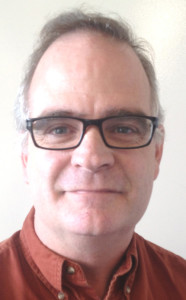Can it be autumn already?
The Autumnal equinox happened this Wednesday the 21st, and I am once again reflecting on why I love this season so much.
If spring is the season of young men’s fancies, autumn is the season of older men’s bittersweet memories.
Decades ago, I first fell in love in this season. She was blond and troubled with a dark past, but sometimes the heart has a mind of its own, and I fell for her – hard.
I remember walking with her on a crisp afternoon on an elm-lined road somewhere up in Napa County, with an arch of quivering gold and crimson leaves over us, she in jeans faded almost white, her blond hair spilling haphazard down her white sweater, and I in a bomber-style leather jacket. I stopped and kissed her and she smiled in a way that reached a corner of my soul that I usually hide from everyone, even myself.
Autumn was the season that I first saw the glory of New England in peak color, a nearly psychedelic experience of seeing colors that don’t occur in nature – occurring in nature all around me. I spent two weeks driving around Vermont, New Hampshire and Maine, and it was like living in a Robert Frost poem. I saw an ancient barn weathered to the point where the raw wood of its walls looked almost like pewter, sitting across a glassy mill pond that reflected the brilliant maples and crimson oaks surrounding it. I saw ancient rock walls delineating long-overgrown fields that disappeared into the woods almost as soon as their owners decamped for richer soil in the Midwest a century or more ago. I walked on old dirt roads through the woods, the trees such a riot of colors that it was like walking in a stained-glass window.
Autumn is walking the streets one bone-chilling afternoon in Portsmouth, N.H. (on the Atlantic coast) and ducking into a little crab shack near the harbor that had waitresses who were curt but warm in a very New England way, who served me a steaming bowl of the most perfect clam chowder on earth – creamy, rich and warm enough to banish the chill from my bones.
Autumn is looking out one moonlit night across the prairie vastness of a demographically emptying western Colorado and seeing a single solitary light in a forlorn window, like a distant lighthouse in an ocean of frosty grass, and imagining an old farmer – perhaps the last holdout on that unforgiving land – whose family had fled that desolation, going slowly mad from loneliness and isolation.
It was in autumn –the season of death – that I walked the somber shore in Normandy, France, with the weathered wreckage of long-ago war all around me, and pondered those days in 1944 when young men fell in their thousands on shell-wracked bloody sands, on their way to freeing a continent of the most brutal tyranny that has ever existed.
But it was also in autumn that I stood and wept before the tomb of Martin Luther King, a martyr for the opposite of war, a man committed completely to the commandment of Christ to love your enemies. His words are perhaps the only true antidote to this politically troubled autumn in our country:
“Love is a weapon that cuts without wounding, and ennobles the one who wields it. It is a sword that heals.
“And I believe that it is this kind of love that can take us through this period of transition and we can come to that brighter day. This is what we’ve tried to do. In the midst of our struggle we haven’t always succeeded, but somehow in some of the dark moments we have been able to stand up before our violent oppressors and say:
“We will match your capacity to inflict suffering with our capacity to endure suffering. We will meet your physical force with soul force. Do to us what you will and we will still love you. We cannot in all good conscience obey your unjust laws because non-cooperation with evil is as much a moral obligation as is cooperation with good. And so throw us in jail and we will still love you. Burn our homes and threaten our children and, as difficult as it is, we will still love you. Yes, send your hooded perpetrators of violence into our communities at the midnight hours and drag us out on some wayside road and beat us and leave us half dead, and as difficult as it is, we will still love you. But be assured that we will wear you down by our capacity to suffer and one day we will win our freedom. We will not only win freedom for ourselves, we will so appeal to your heart and your conscience that we will win you in the process and our victory will be a double victory.”
Matt Talbot is a writer and poet, as well as an old Benicia hand.







Leave a Reply